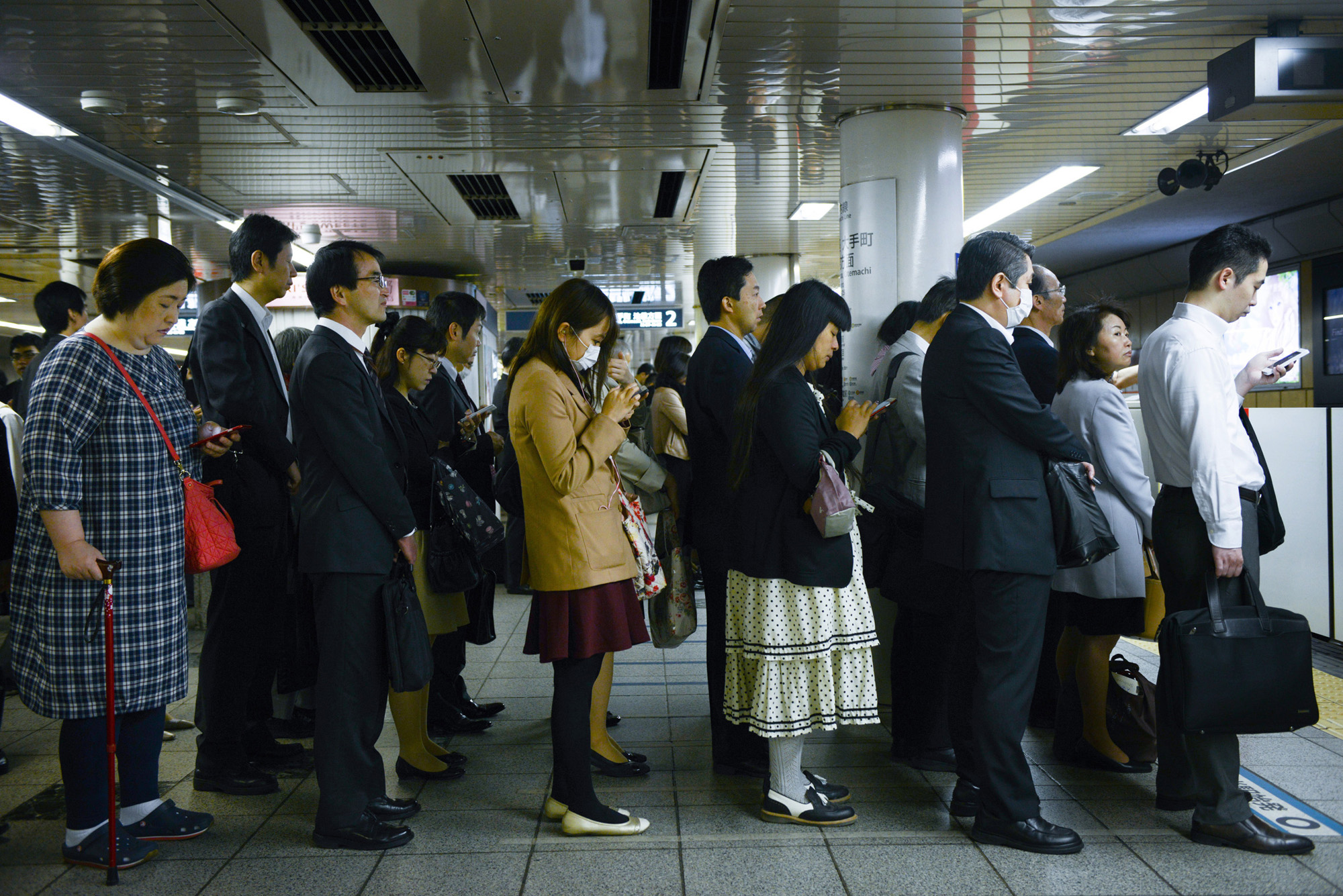A recent Twitter message urging employees of a company to come to the office as usual — on the morning North Korea fired a ballistic missile over Japan — drew spirited responses from a lot of people. Meanwhile, it's a common sight to see salaried workers waiting patiently in train stations to go to work even when public transportation is paralyzed by an oncoming typhoon. Many people seem to think they have to go to work no matter what.
One of my overseas friends says that Japanese are a hard-working people — and is curious why they can't work at home. A friend who lives in another Asian country was "working from home" while she stayed in Japan for about a month.
Telecommuting — or teleworking or remote-working, in which people work without being constrained by place or time — is still not widespread in Japan. In the United States, 40 percent of workers are said to have adopted this style, at least partially, with the ratio rising in accordance with their job skills. As of last year, only 13.3 percent of Japanese companies allowed their employees to telecommute. Even where the system is introduced, many consider telecommuting as a special way of work reserved for those who need to work from home as they raise their children or care for ailing relatives. A mere 2.7 percent of the nation's total labor force telecommutes at least once a week.


















With your current subscription plan you can comment on stories. However, before writing your first comment, please create a display name in the Profile section of your subscriber account page.